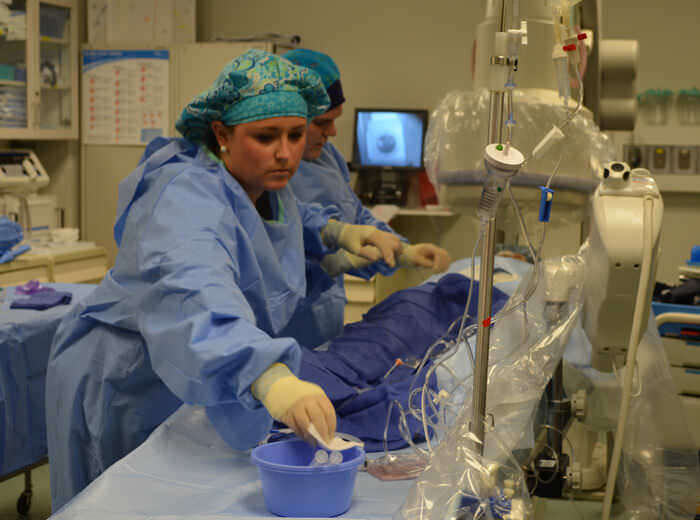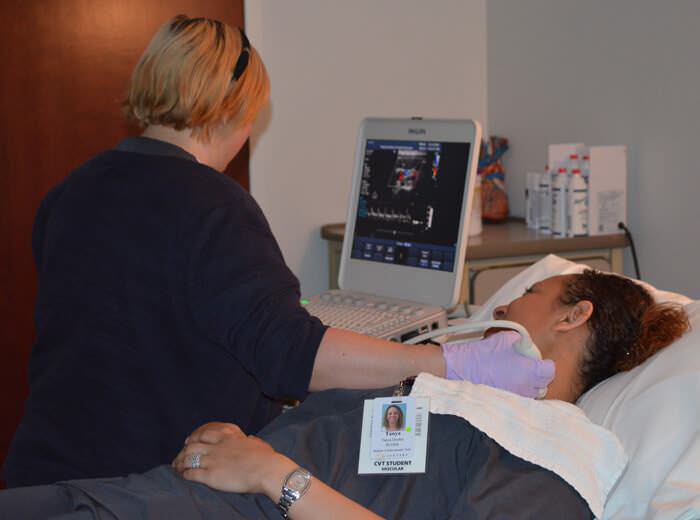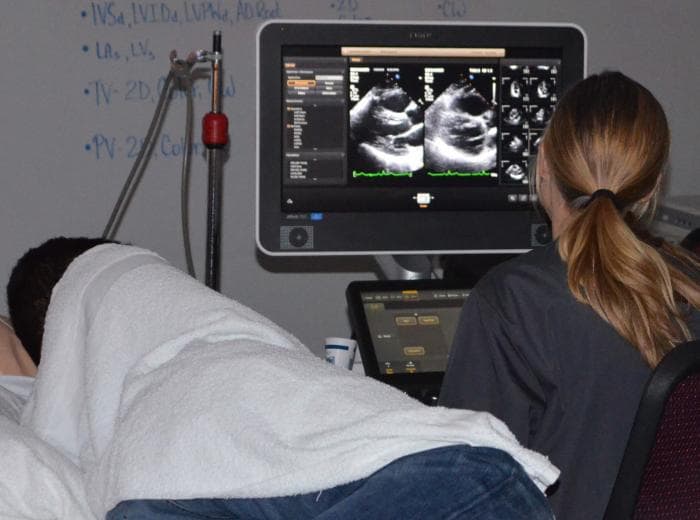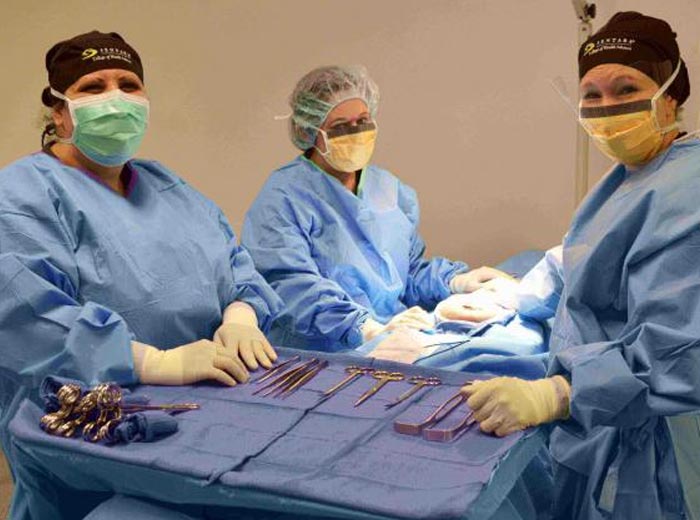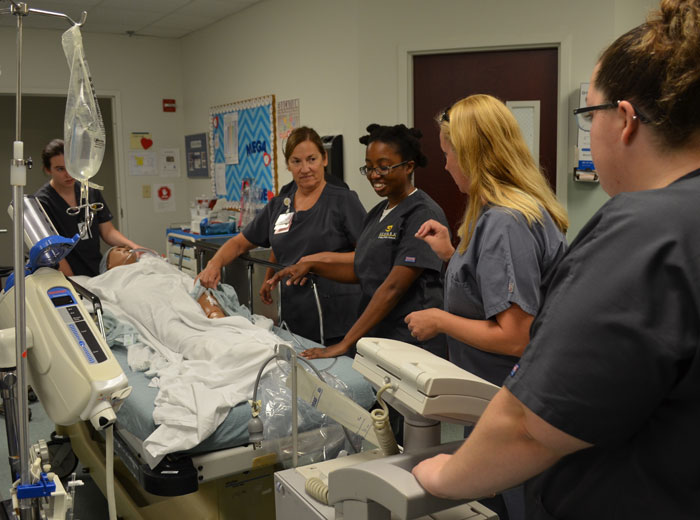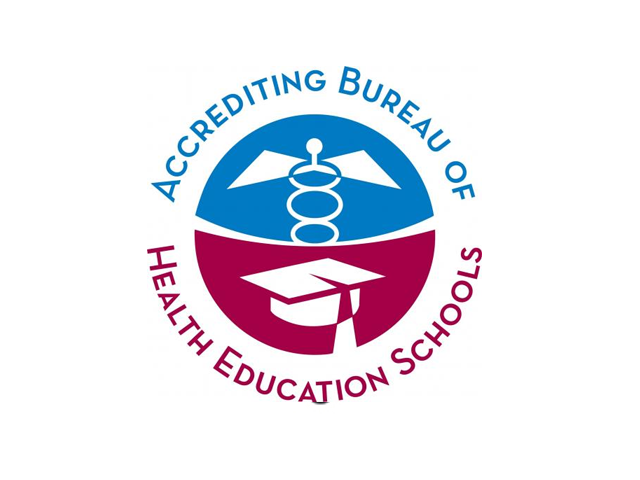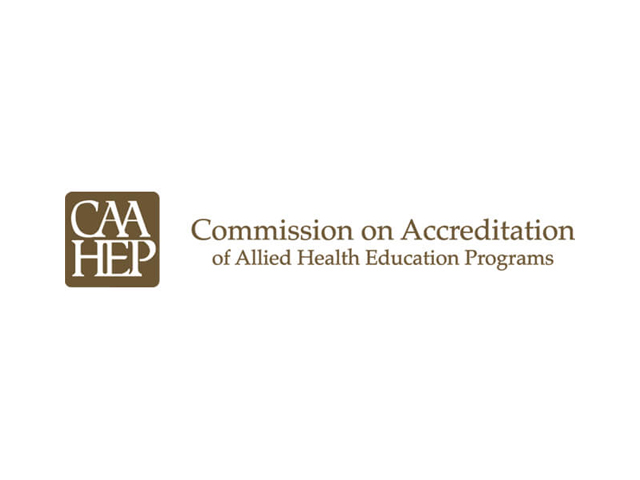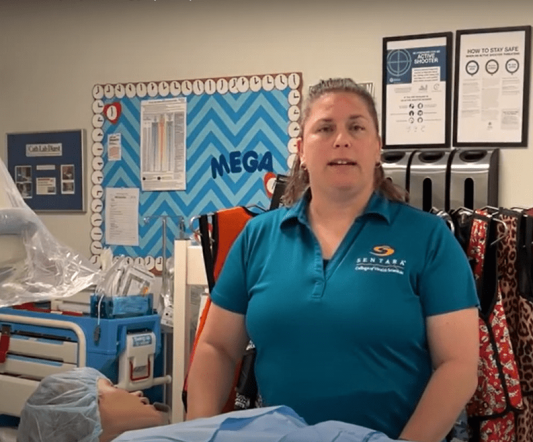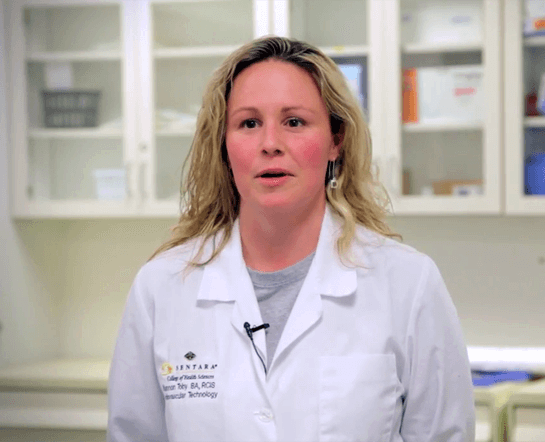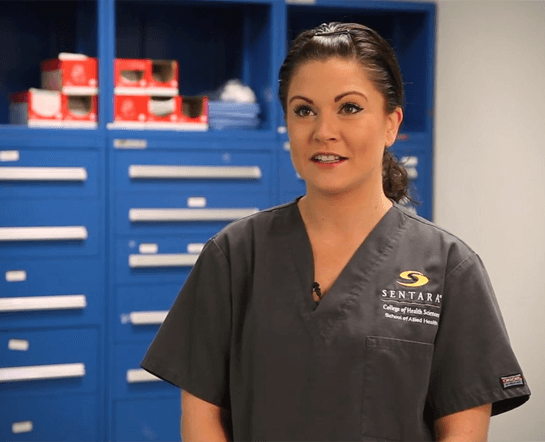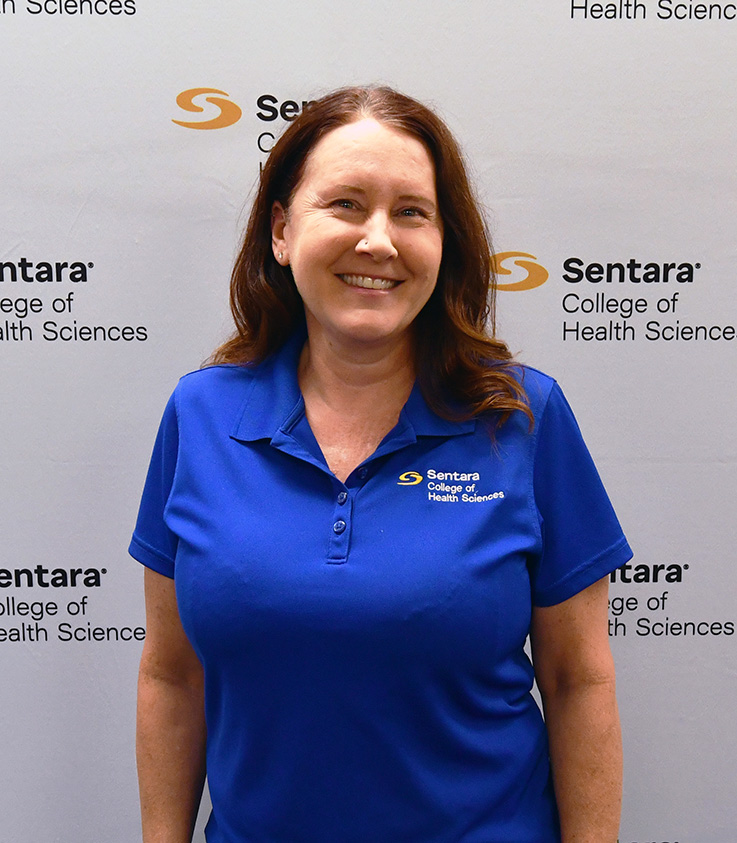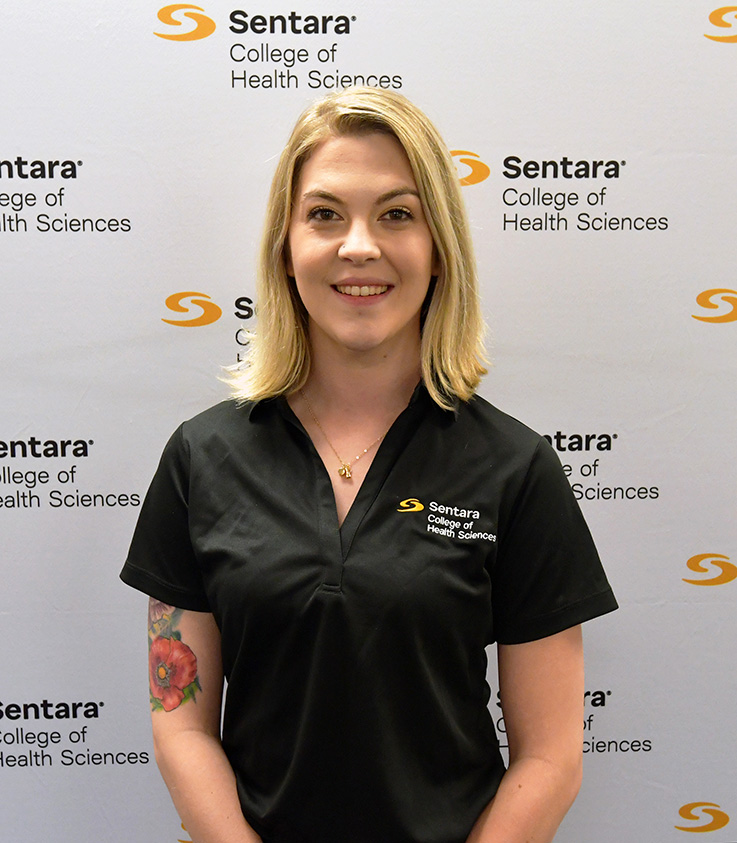About the Program
Specialize in diagnosing and treating abnormal heart rhythms that can be either too fast or too slow.
Associate of Applied Science in Cardiovascular Technology
Specialty: Cardiac Electrophysiology
As a Cardiac Electrophysiology Technologist, you will work in a hospital as a member of the Electrophysiology Lab (EP Lab). There you’ll provide highly specialized assistance to an electrophysiologist, who is a cardiologist with advanced training in the diagnosis and treatment of heart rhythm problems.
You’ll learn electrophysiology (EP) procedures that diagnose heart rhythm disorders, as well as procedures that treat these disorders. Your EP studies will make it possible to diagnose the source of heart rhythm disorders, evaluate the effectiveness of certain medications in controlling these disorders, predict the risk of a future cardiac episode, and assess the need for an implantable device, such as a pacemaker, or a therapeutic procedure like radio frequency catheter ablation.
As a Cardiac Electrophysiology Technologist (EP Lab Tech) you will work with highly sophisticated imaging, monitoring, mapping, and recording systems in EP labs, cardiac catheterization labs, and operating rooms. You will also serve as a first assistant to the physician and are responsible for reviewing and compiling data collected during EP procedures and device implants. EP Techs perform direct patient care and are an integral part of the EP team.
This Program is for students who aspire to work in the EP Lab. If you are already working in a cardiac Cath or EP Lab and wish to obtain an academic certificate and professional certification, our Certificate in Cardiac Electrophysiology (CEP) Academic Certificate is for you.
Your Educational Experience
As a student, you’ll learn in classrooms, skills labs, clinical settings, and online, thanks to the College’s emphasis on hybrid learning. You’ll learn material when it’s convenient for you, then come together in class to discuss what you’ve learned; or in skills labs, where you’ll apply that knowledge in a safe environment that can simulate nearly any medical condition you might encounter. You’ll gain more than 1,500 hours of hands-on experience in the classroom, skills lab, and clinical rotation – surpassing the requirements for licensure or of other programs. So you’ll graduate from Sentara College uniquely prepared for one of the most challenging and rewarding careers anywhere. This approach to education is what makes Sentara College of Health Sciences one of the top healthcare schools in the region, and will set you apart from all others.
Are You a Sentara Employee?
Sentara offers tuition assistance that can fully fund this program for Sentara employees. This means employees like you can earn an associate degree at no cost to you.*
It’s easy to check your eligibility and sign up
Confirm your eligibility and sign up by visiting the Sentara Guild page. After you’re there…
Step 1
Follow the prompts to log in, create an account, or get started.
Step 2
Click “Check your benefit” and fill out the form for Sentara College of Health Sciences’ Cardiovascular Technology program.
Step 3
Select “Start a request” after confirming your eligibility and follow the prompts.
It’s that easy to get your associate degree tuition and fees fully funded by your Sentara Guild benefit!*
You’ll also need to apply to the Cardiovascular Technology program itself. You can do that by hitting the “Learn More” button below. If you’d like to talk to a recruiter, they’re happy to assist you! Simply click recruitment@sentara.edu or call 757-388-2900.
*Consult your advisor regarding any tax liability.
Cardiac Electrophysiology at a Glance
- Classes are held daytime, full-time Monday through Friday
- The Program is offered every August
- Graduate with your Associate of Applied Science degree in Cardiovascular Technology and be eligible to apply to sit for the registry examinations prior to graduation
- The CVT Program has a lab, complete with equipment and supplies, for practicing invasive and hemodynamic monitoring, and cardiac or vascular ultrasound
- More than 1,500 hours of hands-on experience in skills labs, simulation, and clinicals
- Small clinical and class sizes with a ratio of 5 students to 1 faculty member
- Gain clinical experience in renowned Sentara facilities
- Now accepting applications for August 2025
- 2024-2025 tuition, fees, and total cost of attendance
The Sentara College Cardiovascular Technology (CVT) Program admitted its first class in 1982 in response to the need for qualified individuals to work in Sentara Norfolk General Hospital’s cardiac catheterization, cardiac ultrasound, and vascular ultrasound labs. Today, Cardiovascular Technologists in all specialties work throughout Sentara.
Career Opportunities in CVT
As a Cardiovascular Technologist, you will enjoy many employment opportunities across the country in hospitals, clinics, physician offices, imaging centers, operating rooms, clinical research laboratories, and the biomedical industry. Cardiovascular Technologists assist physicians and surgeons in performing many diagnostic and therapeutic procedures both in the hospital and in the outpatient setting. The highly specialized fields of Cardiovascular Technology are in high demand.
To learn about this program's state authorizations and compliance disclosures, please click here.
Interested in applying to this program?


